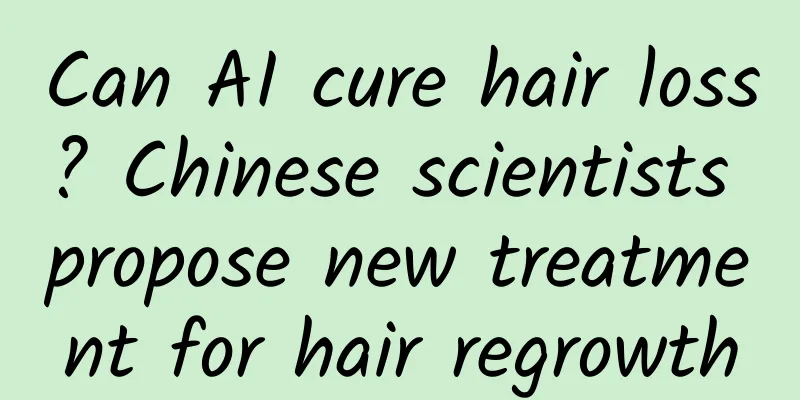The "New National Standard" is officially implemented! Why do bakeries no longer use this additive?

|
Xinhua News Agency, Beijing, February 8th , Title: Why do bread and pastries no longer use this additive? Xinhua News Agency reporters Dong Ruifeng and Li Heng According to the "National Food Safety Standard for the Use of Food Additives" (GB 2760-2024) issued by the National Health Commission and the State Administration for Market Regulation, from February 8, 2025, sodium dehydroacetate (dehydroacetic acid and its sodium salt) will no longer be used in seven types of food such as bread, pastries, and fruit and vegetable juice (pulp), and the maximum usage in pickled vegetables will also be adjusted from 1 gram/kilogram to 0.3 grams/kilogram. Why is the use of this food additive being adjusted? Is it harmful to eat food that has been added with sodium dehydroacetate? How should we view food additives scientifically? The reporter interviewed food safety experts for their interpretation. Why adjust the use of sodium dehydroacetate? Minimize the risk Experts told reporters that sodium dehydroacetate is a common food additive that has a good inhibitory effect on yeast, mold and spoilage bacteria. It has been approved by many countries in the past few decades and is widely used in food to extend the shelf life. So, why does the new national standard adjust the scope and amount of use of sodium dehydroacetate? Ruan Guangfeng, deputy director of the China Food and Health Information Exchange Center, said that there are generally two reasons for re-evaluating a food additive: one is that new evidence has been found on its safety, which requires re-evaluation; the other is that the food consumption structure has changed. When the consumption of a food changes from a small amount to a large amount, it is necessary to consider whether the accumulation of a certain food additive will exceed the safety limit. Previously, animal experiments have shown that repeated and large-scale consumption of sodium dehydroacetate may cause the animals to eat less, lose weight, have decreased coagulation ability, and suffer changes in liver and kidney tissue. Professor Fan Zhihong of the College of Food Science and Nutrition Engineering at China Agricultural University believes that such animal experiments cannot prove that humans will suffer the same harm if they eat a small amount of such additives, but they often lead people to have stricter limits on the substance. For example, the consumption of baked products has increased significantly in recent years, and the content of food additives in them needs to be reconsidered. Relatively speaking, the consumption of pickled vegetables is not high, so the maximum limit is only lowered. Experts said that food safety aims to "reduce risks as much as possible". With the latest scientific research findings and changes in the domestic food consumption structure, the use of food additives will also be adjusted accordingly to prevent problems before they occur. Zhang Jianbo, director of the Standards Office 3 of the National Food Safety Risk Assessment Center, said that the decision to revise the regulations on the use of sodium dehydroacetate was made based on the results of food safety risk assessments and research into actual usage in the industry. What are the health risks after consumption? Safety depends on the amount of intake Sodium dehydroacetate has been used in the food industry for a long time. Many people are concerned about the risk of physical harm if they have eaten this food preservative before. Food safety experts say that the size of the risk is closely related to the amount of intake, that is, it depends on how much the consumer actually eats at one time and how often they eat it in a year. Fan Zhihong said that sodium dehydroacetate can be metabolized in the human body. Relevant experimental data show that sodium dehydroacetate is not a highly toxic ingredient in toxicology. Animal experiments have found that its harmful effects are the result of "long-term", "repeated" and "large-scale" consumption. People's daily intake is generally less than one-tenth of the harmful amount found in the experiment, so there is no need to worry too much about health risks. Ruan Guangfeng said that sodium dehydroacetate is not "banned" and is still a permitted food additive that can be used in pickled vegetables, fermented soy products and other foods. This shows that the risk assessment results show that the reasonable use of sodium dehydroacetate is still safe. Ruan Guangfeng also introduced that many countries such as the United States, Japan, and South Korea still allow the use of sodium dehydroacetate in some foods, but each has different regulations. For example, the United States allows it to be used in cut or peeled pumpkins and strawberries, with a maximum usage of no more than 65 mg/kg; Japan and South Korea allow it to be used in butter, cheese, margarine and other foods, with a maximum usage of no more than 0.5 g/kg. Can we still eat food additives? We can use them reasonably Out of concern for food safety, some consumers are also worried about the risks “added” by food additives such as preservatives. In this regard, Sun Baoguo, an academician of the Chinese Academy of Engineering and president of the Chinese Society of Food Science and Technology, said that the use of food additives has a long history. For example, the brine used in ancient times to make tofu, whose main ingredient is magnesium chloride, is an additive. Modern people's lives are even more inseparable from food additives. Sun Baoguo introduced that my country's relevant standards stipulate more than 2,300 food additives in 23 categories, including preservatives, colorants, leavening agents, sweeteners, etc. If they are used in accordance with the standards and do not exceed the maximum usage and maximum residue, they will not cause food safety problems. Some food safety incidents that have occurred in the past often stem from the illegal use of "illegal additives" or the abuse of food additives. Sun Baoguo said that in order to protect public health and the development of the food industry, my country has always implemented a strict access and elimination mechanism for food additives, carried out continuous and dynamic tracking and evaluation, constantly adjusted their scope and amount of use, and banned the use of some substances. We should view the adjustment of standards scientifically and rationally. |
Recommend
How to promote products on Douyin? How to promote products in Douyin store?
After a merchant opens a Douyin store , he needs ...
Youdao Children's Dictionary Pen K3 Review: A super learning partner that can be used from kindergarten to elementary school
For language learning, starting from around 3 yea...
Why do many people lose interest in Android after getting used to iPhone? Experienced people tell their true feelings
Tian Ji's horse racing? It was just to help w...
Oh my god, the glasses cloth is not used to wipe glasses!
Planning and production Source: Dr. Curious (ID: ...
Want to lower house prices? It might be a good idea to teach cars to drive themselves
Who would have thought that the group of people w...
Mother's Day Marketing Guide
There is still a month to go until Mother's D...
How old is the Earth?
Most Europeans before modern times believed that ...
Will a person be woken up by the urge to urinate during sleep? Will the bladder be ruptured by the urge to urinate?
Getting up every morning is a difficult thing for...
Doutuimao creates a new way to play the constellation account Douyin applet: account creation, materials, editing, and how to monetize (with materials)
Doutuimao creates a new way to play the constella...
Why does the whole camellia fall to the ground when it "closes its curtain"?
In early spring, the wind still carries a little ...
In the mobile era, the opportunity for community 3.0 has arrived
The ancients said that things never happen in thr...
How do you write copy that will inspire users to place orders after reading it?
Copywriting with sufficient promotional power wil...
30 high-quality information flow cases in 14 industries, learning them will instantly improve the effect by 80%!
Friends often ask what constitutes a high-quality...
Datong Mini Program Investment Company, how much does the watch mini program cost?
How much does it cost to invest in Datong Watch M...
What is the universe like? Here is the answer you want
An unforgettable olfactory experience What does s...









